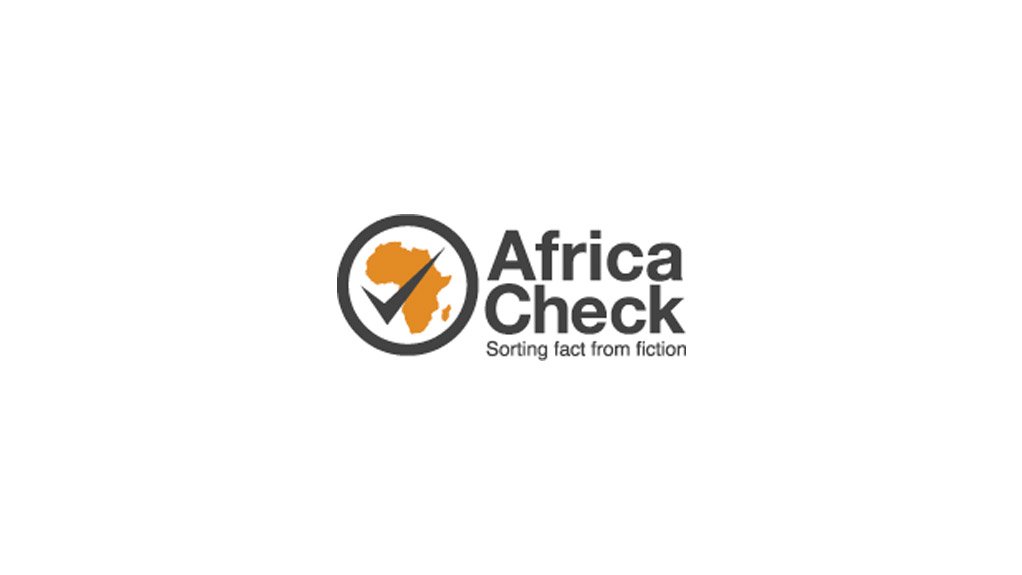In his 10th State of the Nation Address, President Jacob Zuma made a number of claims relating to the country’s water situation. Among those, the president specifically mentioned water losses in municipalities.
“In an effort to curb high water losses, which in some municipalities far exceed the national average, which is currently at 37%; about 10,000 unemployed youth are being trained as plumbers, artisans and water agents,” Zuma held.
Africa Check has already investigated the second part of that statement in our fact-check of the 2017 State of the Nation Address.
But what exactly is the state of water losses in our municipalities? We set out looking for data.
132 municipalities studied in 2012
The department of water and sanitation’s spokesman, Sputnik Ratau, told Africa Check that he wasn’t able to tell us which municipalities exceeded the national average that Zuma referred to.
The national average for municipal water losses was established in a 2012 report submitted to the Water Research Council by water engineering firm WRP.
In official reports, water losses are called “non-revenue water”. This refers to water that a municipality doesn’t generate income from. It includes water that is lost through physical leaks, commercial losses along with the authorised consumption of water that isn’t billed for.
To estimate the average water lost by municipalities the firm looked at data collected from 132 municipalities out of 237 municipalities at the time. They calculated how much water a municipality received and how much was billed for (the water flow patterns) recorded it in a water balance sheet.
To produce this balance sheet, WRP collected information from Statistics South Africa’s non-financial census of municipalities, the then department of water affairs’ regulatory performance measurement system and the national information system along with other data sources. The balance sheet was then emailed to various water service authority managers who were required to fill any gaps and rectify mistakes.
From this analysis, the firm estimated that the average share of water lost by the 132 municipalities studied was 36.8%, or 37%. This average, the report noted, was close to that of 32 other countries considered, namely 36.2%. Physical leaks made up 25.4% of the non-revenue water.
‘Very limited knowledge of water use’
Collecting the data raised concerns regarding the quality of municipal records. Only 45 municipalities (19%) had complete records that were deemed of good quality.
This observation is echoed in the 2015 Municipal Benchmarking Initiative annual report which the water services director for the South African Local Government Association (Salga), William Moraka, forwarded to Africa Check.
The report noted that “despite many municipalities noting that they have a water shortage problem, many of these municipalities have a very limited knowledge of their water use and associated water losses”.
So what is the current state of South Africa’s municipal water losses?
Data too unreliable for Stats SA to publish
Celia Mamabolo from the local government division at Statistics South Africa provided Africa Check with municipal-reported data on the number of water units they bought from water boards and other service providers, together with water they received from their own water sources. She also provided Africa Check with data on water units municipalities lost in distribution.
Mamabolo cautioned that this “data is not published and has limitations to it. Most municipalities do not keep records of their water statistics.”
Only 3% of municipalities responded to the questions about water supply and loss, Mamabolo told Africa Check. This data is therefore too unreliable to publish, she added.
A good example is the data the City of Tshwane provided for the 2014/2015 financial year. It shows an estimated water supply of 105,807,911 kiloliters, of which 85,723,303 kiloliters were estimated to be lost. This would mean close to 81% of the metro’s water was lost in that financial year.
This is in stark contrast to the water loss reported in the metro’s annual report for 2014/2015, which was listed as 23.33%.
Water services development plans meant to be public
Africa Check tried to access a final possible source of data, municipalities’ water services development plans.
In accordance with the 1997 Water Services Act, municipalities are to produce these plans on an annual basis and they should be made available to the public at request. They are meant to outline how municipalities intend to provide water and sanitation services to their communities.
Africa Check tried to get access to these plans through the department of water and sanitation, but our request was still being processed at the time of publication. (Note: We will update this report when we receive them.)
Even so, “quite often the required information like water meter data is missing”, an associate professor in the department of civil engineering at Stellenbosch University Professor Heinz Jacobs, told Africa Check.
Many municipalities therefore cannot provide values for their water losses in their water services development plans.
Conclusion: No conclusive data available on how much water SA municipalities lose
Data on municipal water loss is hard to find. A specially commissioned study in 2012 found that the share of water lost back then ran at an average of 37%.
Africa Check searched high and low for current figures. We consulted the South African Local Government Association, Statistics South Africa and tried to access the water services development plans municipalities are meant to produce annually and make publically available.
These sources point to inadequate record-keeping by South African municipalities. Given that the institutions themselves don’t seem to know how much water they are losing, we have to rate the claim that many municipalities exceed the national water loss average of 37% as unproven.
Researched by Gopolang Makou, Africa Check
EMAIL THIS ARTICLE SAVE THIS ARTICLE
To subscribe email subscriptions@creamermedia.co.za or click here
To advertise email advertising@creamermedia.co.za or click here











